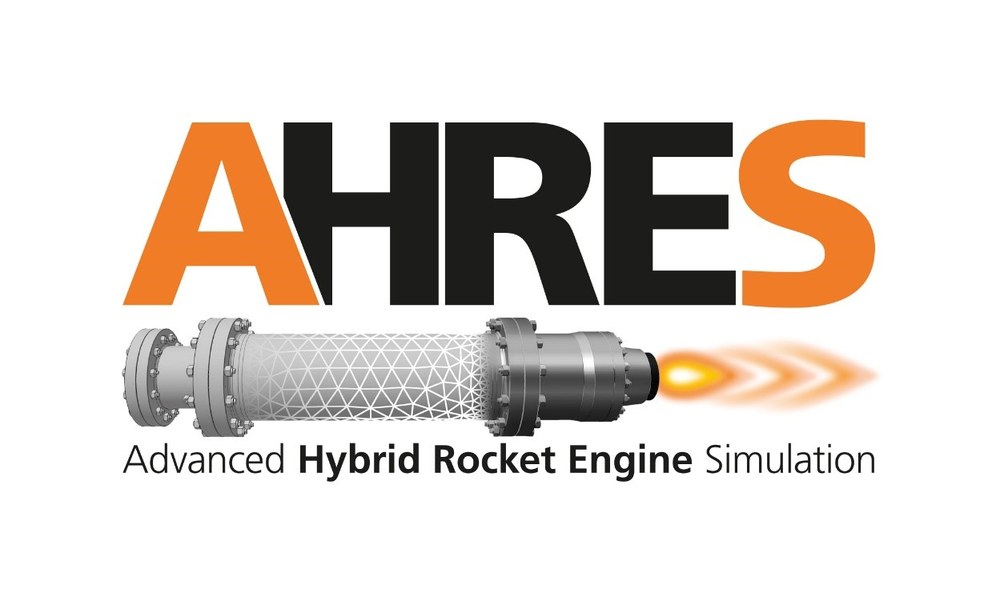AHRES

Hybrid rocket engines are a promising alternative to solid and liquid rocket engines, which are nowadays typically used in space transportation. By applying a solid fuel and a liquid oxidizer, they combine the advantages of both conventional systems, which leads to more cost-efficient and safer spacecrafts. In comparison, hybrid rocket engines have a simpler buildup, the possibility of thrust regulation as well as a higher operation reliability and environmental safety. Therefore, they are well suited for a number of applications such as upper stage engines of small and medium size carrier systems, for high-altitude research rockets, for lander systems as well as for space tourism. Several drawbacks, which prevented commercial usage of this engine type in the past, can now be resolved with more understanding of the burn-off process as well as by adoption of innovative fuel compositions and modern production techniques. Due to a strong interaction between the multiphase combustion process and the burn-off properties of the solid fuel, the scalability from small bench tests to engines of high thrust classes is still a technological challenge.

The Spacecraft department of the Institute of Aerodynamics and Flow Technology is approaching this problem by developing and validating the software AHRES (Advanced Hybrid Rocket Engine Simulation), which allows for the creation of an optimized design of a complete hybrid rocket engine within 100 days. Furthermore, it enables the analysis and design of solid rocket engines. Since 2008, results from multiple DLR projects have contributed to this software. Currently, the development work is continued within the cross-sectoral research project SimBaCon.
Validation of the software AHRES is conducted by manifold numerical and experimental analysis techniques. Comparative calculations are performed by CFD (computational fluid dynamics) simulations. A special version of the DLR solver TAU was developed for this purpose, which is considering all relevant fluid-mechanical and combustion-dynamical processes. The local burn-off of the solid fuel is an important parameter of the process in hybrid and solid rocket engines. Consequently, its effect is considered in the simulation as well as in the comprehensive analysis of the combustion process. Moreover, the Institute operates its own test facility for rocket engines at the DLR test site Trauen, which allows for the validation by experiments. This facility was specially designed for the high energetic oxidizer hydrogen peroxide (H2O2) and enables test runs of hybrid rocket engines with thrusts between 150 and 15,000 newtons and firing durations of up to 60 seconds. The application of state-of-the-art measurement techniques (pyrometry, high-speed videography, piezoelectric pressure measurement, ultrasonic regression rate measurement amongst others) as well as different test engines (AHRES, ARIEL, VISERION) facilitate the analysis of all relevant process parameters. This analysis leads to a profound understanding of the combustion process and achieved validation of the software AHRES.
Project | AHRES - Advanced Hybrid Rocket Engine Simulation |
|---|---|
Term | Long term project |
Partners | DLR internal development of the Institute of Aerodynamics and Flow Technology |
